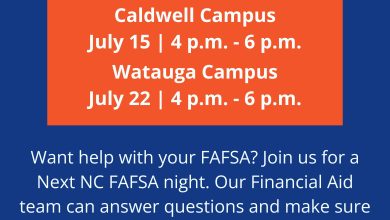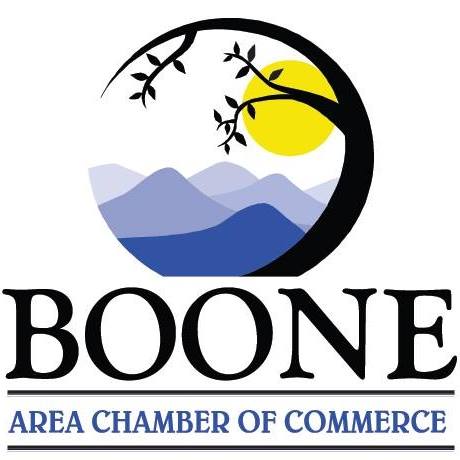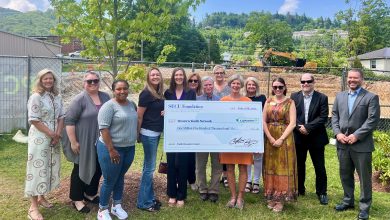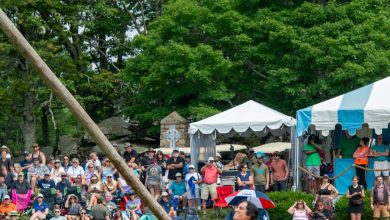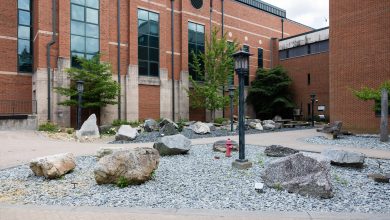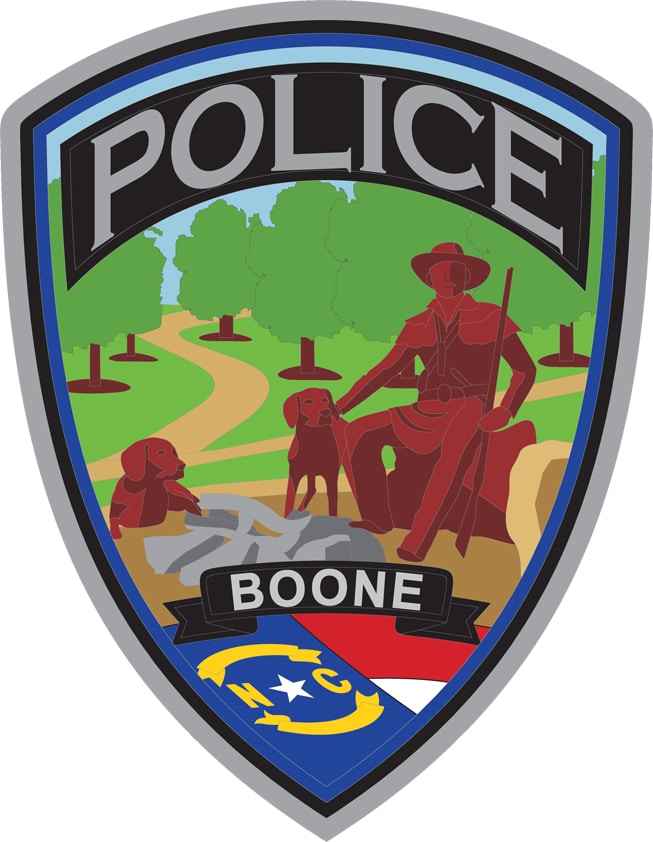
Last Updated on June 18, 2020 5:25 pm
The Boone Police Department has released a statement and answers to questions they have received regarding community policing.
The statement, prepared by Interim Chief Andy Le Beau, addresses questions the department has received in the aftermath of the George Floyd murder and recent protest in Boone.
Interim Chief Le Beau stated, “I am hopeful that the answers to these questions demonstrate our commitment to the Boone community. We hold the philosophy that if we police ourselves and hold ourselves to a high standard then our community will have a police department that everyone can be proud to call their own. We have truly exceptional men and women who serve at Boone PD and we are striving together to be a model police department in all aspects. We strive to impartially enforce the law and treat all members of our community with dignity and respect. One of our local pastors reminded me recently of the words of Winston Churchill, “The price of greatness is responsibility”. With all of this said- we understand that trust must be earned and we will continue to develop and grow relationships with all community groups to best serve Boone.”
He went on to add, “As a personal note, I would like to thank Pastor Reggie Hunt, Toussaint Romain, Tommy Soffield, and town manager, John Ward for your leadership in the community and commitment to the work that lies ahead. I would also like to thank the ASU Black Student Association and Raheim Andrews who took the time to meet with me to provide a better understanding of their concerns.”
The full statement is below:
Boone, NC –
The town of Boone officials and police department have been receiving numerous questions in the aftermath of the George Floyd murder and specifically after the awareness to this issue was heightened by two protests in downtown Boone. We are able to report that the questions and concerns raised have been addressed and most of them were addressed many years ago. Some of the questions we have received include:
Does Boone Police use body cameras?
Yes, we began implementing body cameras in 2013. We were among the first in the state to adopt this technology. We have policy requiring officers to use the body cameras when interacting with citizens. The system automatically downloads the video without any input from the officers by a computer program called Evidence.com. Officers can only view the video, but they cannot delete or alter the video. The system does not allow any type of manipulation of the video. The digital storage is expensive; however, over the past several years we made the decision to keep all videos indefinitely. Our officers have embraced the body cameras and all agree that they would not want to work without the cameras as this technology protects them from false accusations. Importantly for citizens, body cameras provide accountability for the officers’ actions.
How does Boone Police handle allegations of excessive force?
If a citizen were to file a complaint of excessive force, which would involve a criminal violation, the chief of police would request the State Bureau of Investigations to conduct an independent review. Their findings would be submitted to the Watauga County District Attorney to determine if the use of force was lawful or if criminal charges would be appropriate. The SBI would handle the case through prosecution. The officer(s) under investigation would be placed on administrative leave during the investigative process.
In addition to any criminal investigation, we would also conduct an administrative investigation. An administrative investigation focuses on policy violations and is substantially different from a criminal investigation. One primary example of the difference between the two types of investigations is that during a criminal investigation an officer is afforded all of the Constitutional rights that any citizen would be entitled to who is under investigation. In an administrative investigation, the officer is compelled to answer all questions and to answer them truthfully. Failure to answer all questions truthfully will result in a recommendation for termination regardless of any criminal proceedings.
The command staff at the Boone Police Department conduct an internal review of all use of force incidents whether a complaint is filed or not. The supervisor reviews body camera footage for each incident as part of the review. All officers are required to complete a comprehensive report for all use of force actions. If an officer’s actions were discovered by our agency that appeared to be a criminal violation, we would also refer the case to the SBI for investigation.
What does Boone Police do to protect and help people of color?
We are happy to be able to report to our community that we have been pro-active in this area for many years now. Around 2016, we began meeting with our Latino community through a group that is now the Immigrant Justice Coalition. This has been an on-going relationship that has strengthened significantly. We are in frequent contact, usually weekly and often times daily, with members of this community at the leadership level working to ensure that Latino community members are educated about how they can access our services and how we can assist in various ways. Boone Police have attended both Faith Action ID drives in Boone with hundreds of Latino community members in attendance. This was a huge success to develop the level of trust for such a large group of Latino community members to show up knowing that law enforcement was going to be present.
For the past two years, the Boone Mennonite Brethren Church and Boone police officers have joined together for a community fish fry. The Mennonite Church is a historical church located within the Junaluska community. Rev. Mike Mathis has been a great community leader and worked with the Boone patrol sergeant, Dennis O’Neal, who is assigned to that district to enhance the community relations between the Junaluska community and the police department.
Other community policing initiatives include a Community Contact program, which began in 2013. This program assigns one officer daily to conduct community policing. The officer is charged with visiting businesses, schools, non-profit organizations who serve our homeless population, faith-based groups and any other types of community groups. We have a number of officers who have adopted classes at Hardin Park and participate in the Lunch Buddies program. We have the opportunity to have positive interactions with all children, including children of color on a regular basis.
In 2018, our town council asked us to do a police forum that would be open to the public. We prepared a presentation about what we do and who we are, and included a question and answer session. This has become an annual forum. We have encouraged participation in the past and hope that more people will now take an interest. This is an opportunity for all members of our community to come and ask questions and learn about their local police department.
In 2019, Boone Police conducted a seven month long Coffee with a Cop series. Each month we taught about a different theme pertaining to law enforcement, such as forensic evidence, body cameras, our canine program and other topics. All of these events were publicly advertised. Beginning in 2020, we were planning to begin a citizens police academy; however, those plans were interrupted by the COVID 19 pandemic.
In 2014, the Watauga Chapter of the NAACP reached out to us and wanted to create a dialog. We conducted multiple meetings and discussed a wide variety of topics from use of force to body cameras. The meetings were very productive and formed strong relationships that are still in place today. We still meet with members of that group on a monthly basis.
As a result of the two recent protests, the organizers of both have met with staff of the police department. We have begun meaningful dialog and making plans with these young leaders to continue to develop our relationships and increase our understanding. Some of these young people are members of the Appalachian State University Black Student Association. We are grateful for some of Boone’s local faith-based leaders and a local business man who are helping to facilitate these meetings. Chief Andy Stephenson of the ASU police department has joined us for the latest meeting with the Black Student Association.
Promotions and Hiring
Supervisors are vital to community relations, overseeing and training personnel, and holding officers accountable. Approximately 4 years ago, the Boone Police began inviting members of community, including minority communities, to sit on promotional process boards to help assess candidates for promotion. During our last promotional process in 2019, four ethnic groups were represented on a lieutenant process. This gives community leaders direct input into who we promote. In our hiring practices, we have collaborated with ASU’s internship program and recently with their Basic Law Enforcement Training program, which has led to increased diversity within our department. We have been able to hire many outstanding cadets from the ASU criminal justice program.
What type of minority sensitivity training does the Boone Police Department receive?
Dating back to 2016, we began mandatory training on such topics as Minority Sensitivity, Equality in Policing, Implicit Bias and other community policing topics. These were all state mandated topics. In 2019, the command staff of the Boone Police Department decided that these classes were insufficient and began to look for outside, expert instructors to teach the topic of Implicit Bias. In 2019, Professor Chuck Claxton and Lieutenant Steve Hunt (ret.) of the Hickory Police Department taught a daylong class on Community Policing Before the Crisis and Implicit Bias. In January of 2020, the command staff met with a prominent Civil Rights leader to arrange further Implicit Bias Training. Further, we planned to continue advanced training with Professor Claxton and Lt. Hunt. These trainings were postponed due to the COVID 19, but the fact is that this type of training was taking place and additional training actively being planned prior to our community asking these questions.
8cantwait Use of Force suggestions?
These suggestions include: banning chokeholds and strangleholds, require de-escalation, require warning before shooting, require exhausting all alternatives before shooting, duty to intervene, ban shooting at moving vehicles, require use of force continuum, and require comprehensive reporting.
The vast majority of the suggestions were already included within our Use of Force Policy. In fact, our use of force policy has far more protections than the 8cantwait recommendations. However, because of the 8cantwait suggestions, we have strengthened the language regarding the duty to intervene and emphasized further the mandate that de-escalation techniques be employed whenever possible. All of our officers receive Crisis Intervention Training (CIT) that teaches de-escalations techniques and education about dealing with individuals with mental illnesses.
The 8cantwait suggestions consist of 8 icons that are in fact very good suggestions. Our policy is 15 pages and provides many more restraints on the officers and includes a detailed use of force continuum, state law language, which clearly states when force is authorized, and specific instructions for post arrest monitoring and care of prisoners to avoid in custody deaths or injury.







